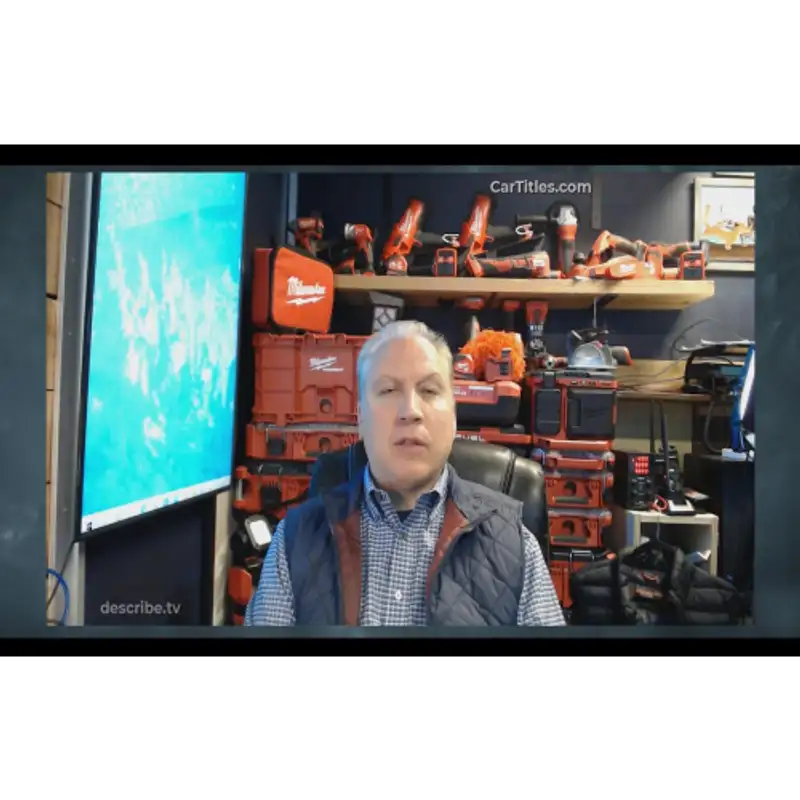Unveiling the Vermont Title Loophole: Benefits and Risks Explained
Download MP3So, what are the pros and cons of the Vermont loophole for car titles, and how does it compare with other methods like a bonded title, court-ordered title, or prior owner contact? Let’s start with the Vermont loophole process. This is something that has been covered in hundreds of videos and articles, including Jalopnik and Hagerty Insurance. Here’s how it works:
If you have a vehicle you purchased without a title and went to your state DMV with a bill of sale, receipt, or no paperwork, they likely denied you. They probably told you that without the previous title, they couldn’t issue a new one. This leaves you trying to figure out your next step. You come across the Vermont loophole, which works by applying through the mail to the state of Vermont with your bill of sale.
Through this process, you don’t get a title but a registration. Once you have that registration, you can use it as proof of ownership, similar to a title, to apply for a title in your state. Having a title is crucial because, without it, you can’t sell, register, or sometimes even insure your vehicle. Although some insurance agents might provide coverage with just a bill of sale, the Vermont loophole is often a viable solution.
The biggest downside to the Vermont loophole is the cost. You must pay sales tax on the full book value of the vehicle, not what you paid for it. For example, if the book value of your vehicle is $7,000, Vermont will charge you 6% sales tax on that amount, which totals over $400, plus registration fees of $76 for cars and $48 for motorcycles. This adds up to nearly $500 in fees. While it may be worth it for some, this is an important factor to consider.
Another issue is the potential hassle with your local DMV. While Vermont registrations are valid ownership documents, some DMV clerks might not recognize them as equivalent to titles. This could lead to delays or additional effort on your part to prove their validity. Additionally, some states, like Indiana, have tried to reject Vermont registrations outright, though they cannot legally do so. You might need to prepare extra documentation or handle the process by mail to avoid complications.
The Vermont loophole only works for vehicles 15 years old or older. For example, in 2022, it applies to vehicles from 2007 or earlier. It also doesn’t work for certain vehicles like military Humvees, Japanese mini trucks, or non-roadworthy cars. Vermont does not inspect vehicles but requires that they be road-legal. If you send photos or statements about the car being in parts or not road-ready, your application might be rejected.
Alternatives to the Vermont loophole include court-ordered titles and bonded titles. A court-ordered title involves filing a case in your local court to declare ownership. This process guarantees a title as long as the vehicle is not stolen or encumbered by liens. While inexpensive (around $50–$100 in court fees), it can take several months and requires you to draft legal documents and possibly place notices in newspapers.
A bonded title is another option. This involves purchasing a surety bond to secure a new title. It is generally cheaper and faster than the Vermont loophole, as you don’t pay Vermont taxes or deal with their DMV. However, a bonded title might deter potential buyers since it carries a “bonded” label for several years. Additionally, a bonded title won’t work if the vehicle has liens or unclear ownership.
A third alternative is contacting the prior owner listed in the vehicle’s title records. This involves researching the current titleholder and getting them to transfer ownership to you. However, this process can be complicated, as it requires filing forms, affidavits, and potentially convincing a stranger to help you.
Each method has its pros and cons, and the best choice depends on your specific situation. While the Vermont loophole is widely discussed, other options like court-ordered titles, bonded titles, and prior owner contact might be more suitable in some cases.

